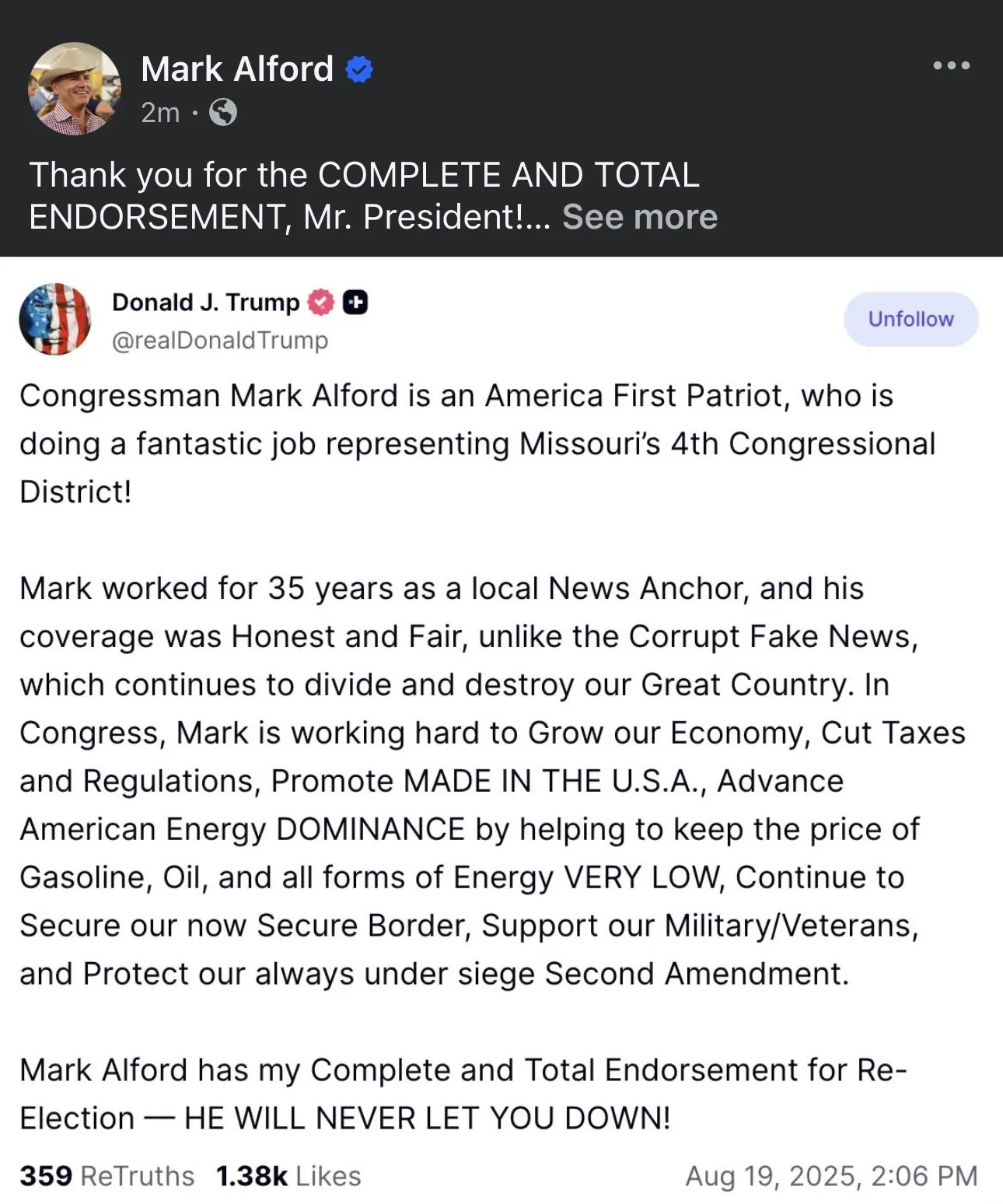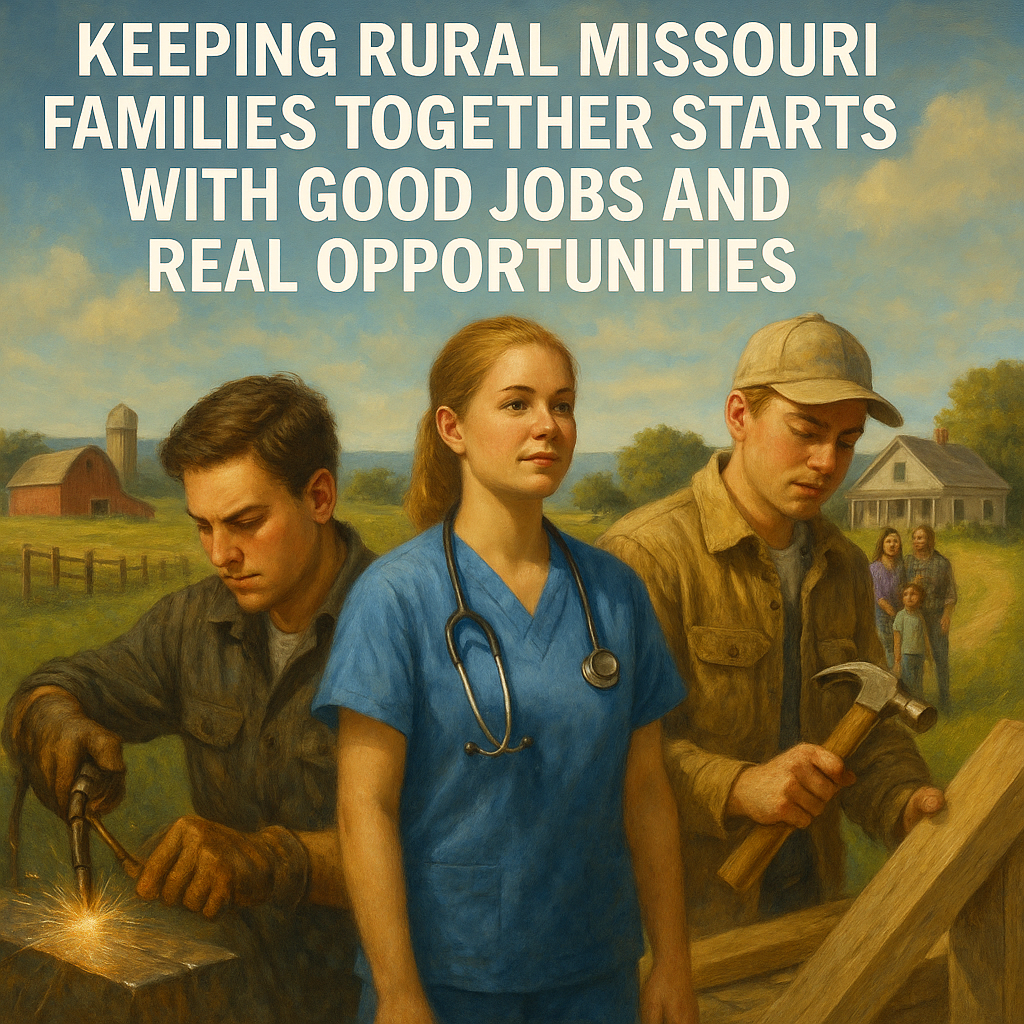Tag: rural Missouri
-
Trump’s Endorsement Is a Political Death Blow—and Mark Alford Votes Against Missouri Every Chance He Gets
Trump’s “Complete and Total Endorsement” isn’t a badge of honor—it’s a political death blow. Meanwhile, Mark Alford’s votes slash rural lifelines and weaken allies. Here are the facts, the losses, and the damage to Missouri’s 4th.
Written by

-
Graves’s “Rails to Trails” Bill Hands Out Vetoes and Sticks Rural Taxpayers With the Bill
Sam Graves’s Rails to Trails Landowner Rights Act—co-signed by Mark “Awful” Alford—would let one landowner kill a project and shift costs to counties. The Supreme Court has already upheld a fair process with compensation. This bill is bad policy for rural Missouri.
Written by

-
Stand Up for Fair Maps and Honest Government—From Texas to Missouri
Texas is a warning about how far some politicians will go to hold power. In Missouri, I’ll defend fair maps, uphold the Constitution, and deliver bipartisan solutions that help families, farms, and small towns—not big-money interests.
Written by

-
Bridging the Divide: A Missouri Voice for All Missourians
Too many in Washington have lost touch with rural America. I’m a Rural Democrat who believes in common sense, bipartisanship, and working for all Americans—not just my party.
Written by

-
Moving Missouri Forward Through Bipartisan Action
I’m a rural Missourian running for US House District-4, committed to bipartisan legislation that benefits farmers, workers, and all Missourians.
Written by

-
They Keep Selling Us Out—And Missourians Keep Voting for Them
Missouri Republicans are rigging the system again with illegal redistricting. Mark “Awful” Alford votes with his donors—not with Missouri. It’s time we stopped rewarding betrayal at the ballot box.
Written by

-
Keeping Rural Missouri Families Together Starts With Good Jobs and Real Opportunities
We’re losing young folks in rural Missouri—not because they want to leave, but because they can’t find good jobs close to home. Let’s fix that with better training, apprenticeships, and opportunities that support families.
Written by

-
Mark Alford’s “Heartland Hotline” Is a Cut Cord, Not a Lifeline
Mark “Awful” Alford’s new “Heartland Hotline” is just a PR stunt to cover up his voting record. He’s not from here, and it shows. Missouri deserves real grassroots leadership—not gimmicks.
Written by

-
A Fair Deal for Missouri’s Family Farmers
Ricky Dana is working on a targeted farm tax credit to protect Missouri’s family farms. The full plan is under wraps—but this post marks the moment the work began.
Written by

